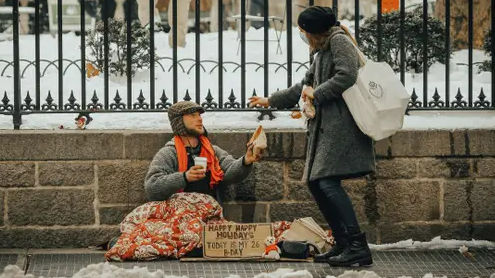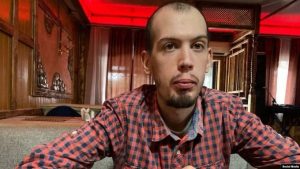Nearly 263 million
people could be pushed into extreme poverty in 2022 due to rising food a fuel
costs around the world, according to an Oxfam study titled, “First crisis, then
catastrophe,” published Monday. The report, stark in its projections, says the
COVID-19 pandemic and the Russia-Ukraine crisis is pushing people into extreme
poverty and governments need to take urgent action to reduce inequality.
The Oxfam report
is based on research carried out by World Bank which earlier projected that 198
million people would slip into poverty by the end of the year. The World Bank
defines extreme poverty at people surviving with less than $1.90 a day.
“Without immediate
radical action, we could be witnessing the most profound collapse of humanity
into extreme poverty and suffering in memory,” said Gabriella Bucher,
international executive director of Oxfam in a statement.
“This terrifying prospect
is made more sickening by the fact that trillions of dollars have been captured
by a tiny group of powerful men who have no interest in interrupting this
trajectory,” Bucher said.
The Oxfam brief
further states that a host of governments are on the edge of debt default and are
being forced into austerity measures slashing public funding to pay for food
and fuel. This is happening at a time when billionaire wealth is ballooning and
oil and gas giants are making record profits.
The reasons for
rising inequality, according to Oxfam, are to do with stagnating wages amid
rising living costs. While food expenditure accounts for 17% consumer spending
in wealthier nations, poorer parts such as sub-Saharan Africa spend nearly 40%.
Among solutions to
the crisis, Oxfam suggests a wealth tax in order to fund public initiatives as
governments experience a fund crunch. The brief proposes a 2% annual wealth tax
on millionaires and 5% on billionaires. This, Oxfam claims, will be able to
generate $2.52 trillion and lift 2.3 billion people out of poverty, provide
universal healthcare, vaccination and social protection.
“We reject any
notion that governments do not have the money or means to lift all people out
of poverty and hunger and ensure their health and welfare. We only see the
absence of economic imagination and political will to actually do so,” said
Bucher.







